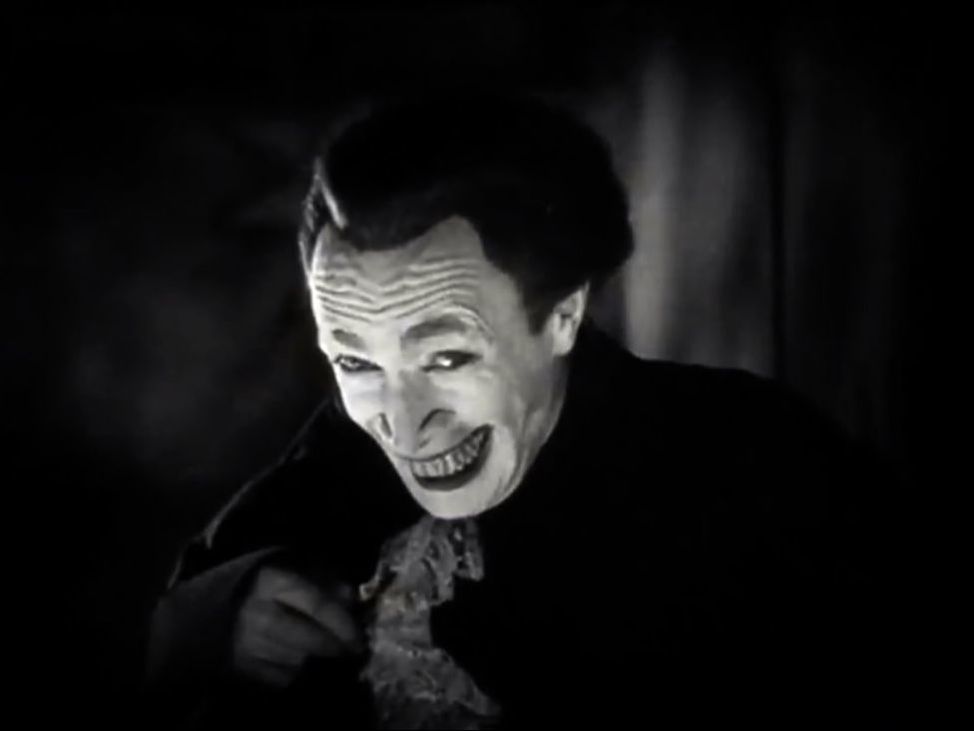|
An orphaned boy is disfigured by outlaws and raised in a traveling show
as the main attraction, never knowing he's the heir to a great fortune. DRAMA
|
The Man Who Laughs (1928)Directed by Paul Leni
Written by J. Grubb Alexander Starring Conrad Veidt, Mary Philbin, Cesare Gravina, Brandon Hurst, Olga Baclanova, Stuart Holmes, George Siegmann, Josephine Crowell Based on the novel by Victor Hugo |
The Man Who Laughs was groundbreaking for its time, delivering a fleshed-out and well-rounded love story in a time when early cinema was chock full of comedy and horror. While the film does have some elements of horror, it turns a lot of tropes on their heads. The scary-looking man is the hero, and the noble knights are the true villains. The performances are all exceedingly brilliant, particularly Conrad Veidt as the tragic hero Gwynplaine, whose face was carved into a permanent grin when he was a child. My biggest problem with the film, and one that ultimately keeps it from being great, is its sluggish pace. Up until the third act, there is almost nothing keeping the audience invested in the film. You can only linger on Gwynplaine's face for so long. Eventually, I'm going to need some story to go with it.
If you go into this film expecting a horror film, you're going to be disappointed. The Man Who Laughs is a drama that tells the story of the orphan boy Gwynplaine and the nobles who are trying to steal the fortune he doesn't know he has. At the heart of the story is Gwynplaine's love for Dea (Mary Philbin), the blind girl he grew up with. This movie has one of the earliest examples of a great ensemble cast, and the chemistry between Veidt and Philbin is believable. I just wish that all the subplots, like the weird sex fiend duchess and the evil jester, could've been either ditched or toned down in favor of developing the decent story that was already there. Despite a problematic trek to a good ending, The Man Who Laughs has a number of great things going for it that keep it from being forgettable. While Gwynplaine's face is so creepy that it later became the inspiration for the Joker, Veidt's fantastic performance sells the character as a tragic victim of circumstance that we can root for. You want him to succeed and be happy because he knows what's most important in life. It's yet another example of the impact that early cinema continues to have on modern pop culture. |
